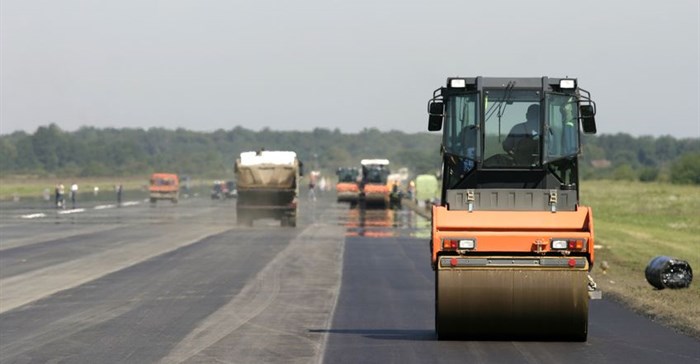
Top stories





Marketing & MediaWarner Bros. was “nice to have” but not at any price, says Netflix
Karabo Ledwaba 2 days

More news

Logistics & Transport
Maersk reroutes sailings around Africa amid Red Sea constraints













As at July this year, 50 SMMEs have been trained in Mthatha. This was not the first time SANRAL hosted a tender training workshop, however this initiative is the first which was aimed at addressing a specific need under a conventional project.
“The course is aimed to equip the SMME sub-contractors with the necessary skills to compile their own tender rates, to monitor and control the production and the costs of their operations.
“From experience, the majority of SMME sub-contractors struggle to make a profit on conventional contracts. There are numerous reasons for thesem, including lack of understanding of the build-up of rates, the resource requirements, production rates and costs,” said Thabiso Ngozwana, SANRAL SR project manager.
The two projects involved were the construction of a dual carriageway between Mthatha and Ngqeleni, and the construction of intersection widenings between Ngqeleni and Libode.
These Special Road Safety Development projects are located in the KSD and Nyandeni Local Municipalities in the OR Tambo District Municipality.
Ngozwana said the reality is that the majority of SMMEs rely on quantity surveyors to price their projects. “Unfortunately, a contractor can only manage its operations if they understand the build up to the rates.”
A decision was taken on site to identify industry accredited courses which will equip the SMME sub-contractor to manage their operations and to become sustainable.
The Contractor Haw & Inglis identified and recommended the training course including a computer-based tendering software programme.
“The success stories include SMME sub-contractors appreciation and attention to resource allocation, the monitoring of production, cost and quality and therefore profitability has improved. They also attest to an increased ability to compile competitive tender prices.
“The SMMEs are now in a position to compile competitive tenders for SANRAL projects. More importantly, the SMMEs are now in a position to negotiate rates from an informed position.”
The R61 project involved a variety of activities which are suitable for SMME subcontracting such as the construction of houses, construction of walkways, the construction of community access roads, fencing, construction of kerbs and channels, concrete side drains, installation of sub soil drains, installation of guard rails, sub soil drains, pipe culverts, gabions and finishing.
The course is conducted against the unit standards contained in the NQF 2 National Certificate in Construction Contracting curriculum, more specifically Unit Standard 9981: Tender for construction contracts. Thus the participants have obtained 20 out of the 190 credits required for the qualification, National Certificate in Construction Contracting.